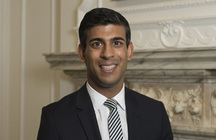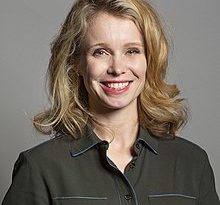Rishi Sunak – 2023 Speech on Mathematics
The speech made by Rishi Sunak, the Prime Minister, in London on 17 April 2023.
It’s great to be back at the London Screen Academy to celebrate the global powerhouse that is our film and television industry.
From Star Wars to Game of Thrones…
…007 to Top Gun Maverick…
…you name it, we make it.
And right here is where we’re training up the next generation of BAFTA winners…
….the producers, set designers, visual effects specialists…
…who are going to ensure the UK remains one of the most creative countries in the world.
Now the reason I’ve come here to talk about maths, is not just because I like maths.
But because what I am setting out today is a fundamental part of how we need to change our country for the future.
Now, one of my five priorities is economic growth.
And if we are going to grow our economy not just over the next two years, but the next twenty…
…we simply cannot allow poor numeracy to cost our economy tens of billions a year…
…or to leave people twice as likely to be unemployed as those with competent numeracy.
So, we have to fundamentally change our education system…
….so it gives our young people the knowledge and skills they need…
…and that our businesses need…
…to compete with the best in the world.
And there’s no better example of that than in our creative industries.
Because what’s the biggest skills shortage holding our film industry back?
As you heard from Gillian, it’s a shortage of technical skills.
And so what have the London Screen Academy put on the curriculum for their 16-to-19 year olds?
Maths.
Why?
Because you can’t make movies without maths.
You can’t make visual effects without vectors and matrices.
You can’t design a set without some geometry.
You can’t run a production company without being financially literate.
And that’s not just true of our creative industries. It’s true of so many of our industries.
In healthcare, maths allows you to calculate dosages.
In retail, data skills allow you to analyse sales and calculate discounts.
And the same is true in all our daily lives….
…from managing household budgets to understanding mobile phone contracts or mortgages.
We also know the benefits of maths for employability and earnings.
Even just basic numeracy skills can increase your earnings by around £1,600 a year.
Put simply, without a solid foundation in maths, our children risk being left behind…
…shut out of the careers they aspire to; and the lives they want to lead.
Now in the decade or so, we’ve gone up 10 places in the international league tables.
And maths has become the most popular of all A-Levels.
But it’s still the case that the UK is one of the least numerate countries in the developed world.
More than 8 million adults have numeracy skills below those expected of a 9 year old.
And around a third of our young people don’t pass maths GCSE.
And it’s not just that we’re not good enough at maths…
….there’s a cultural issue here too.
I’ll be honest, when my daughters first heard me talk about them doing more maths they weren’t too excited.
And that’s just it.
We make jokes about not being able to do maths.
It’s socially acceptable.
We say things like: “Oh, maths, I can’t do that, it’s not for me” – and everyone laughs.
But we’d never make a joke like that about not being able to read.
So we’ve got to change this anti-maths mindset.
We’ve got to start prizing numeracy for what it is – a key skill every bit as essential as reading.
So my campaign to transform our national approach to maths is not some nice to have.
It’s about changing how we value maths in this country.
And changing the way our education system works to deliver it…
….so that all our children get these vital skills for life.
Now, parents and teachers listening to this will want to know what that means for our children today.
So let me tell you.
We’re in the process of making maths more accessible, building our children’s confidence, so they don’t fear maths.
We’re creating more sector specific content that can excite young people about the relevance of maths for the careers that they aspire to…
…to help teachers bring maths to life in the classroom…
…from building sets for school plays to calculating the angles of free kicks or the speed of a formula one car.
We’re extending our Maths Hubs – unique partnerships of expert schools that support maths teaching.
And we’re strengthening maths in primary schools…
…including with a new fully funded professional qualification for those that are teaching it.
But we also need to address a very specific problem that’s causing us to fall behind the rest of the world.
We are one of the few developed countries where young people don’t routinely study some form of maths up to the age of 18.
They do it in Australia, Canada, France, Germany, Finland, Japan, Norway and America.
Why should we accept any less for our children?
Of course, we shouldn’t.
That’s why I set out in January we are going to change the way our system works…
…so that everyone in our country will study some form of maths all the way to 18.
Now let me be absolutely clear – I am not saying the answer is A-Level maths for everyone.
But we do need to work out the maths our young people should study.
So we’re going to look at what 16-18 year olds around the world are learning.
And we’re going to listen to employers and ask them what they say the maths skills are that they need.
That’s why today I am appointing a new expert group….
…who will help us identify that core maths content that our 16-to-18 year olds need…
….and whether we need a new specific qualification to support that.
But to repeat: that will not be A-Level maths for all.
And let me also be clear that we’re not going to deliver this change overnight.
We’re going to need to recruit and train the maths teachers.
We’re going to work out how to harness technology that we need to support them.
And we’ll need to make sure this maths is additional to other subjects – not instead of them.
Just as here at the London Screen Academy, they don’t teach maths instead of the arts – they teach both.
Because they are complementary not contradictory.
So it will take time to implement this change.
But we are taking the first step today by identifying the maths content that will give our 16-to-18 year olds the skills they need to get on in life.
And when we have that, then we’ll come back with a detailed plan to deliver it.
I’ll just finish on a personal note.
Every opportunity I’ve had in life began with the education I was so fortunate to receive….
…and maths was a critical part of that.
And I knew it was important then.
And when I look at how the world is changing, it’s only going to be more important for my children – and yours.
So I won’t sit back and allow this cultural sense that it’s ok to be bad at maths to put our children at a disadvantage.
We’ve got to change this.
We’ve got to value maths, and what it can do for our children’s futures.
Giving our children a world class education is the single most important thing we can do.
It’s the closest thing we have to a silver bullet….
…the best economy policy, the best social policy, the best moral policy.
That’s why I’m proud that it’s our policy, and I will never stop striving to achieve it.


